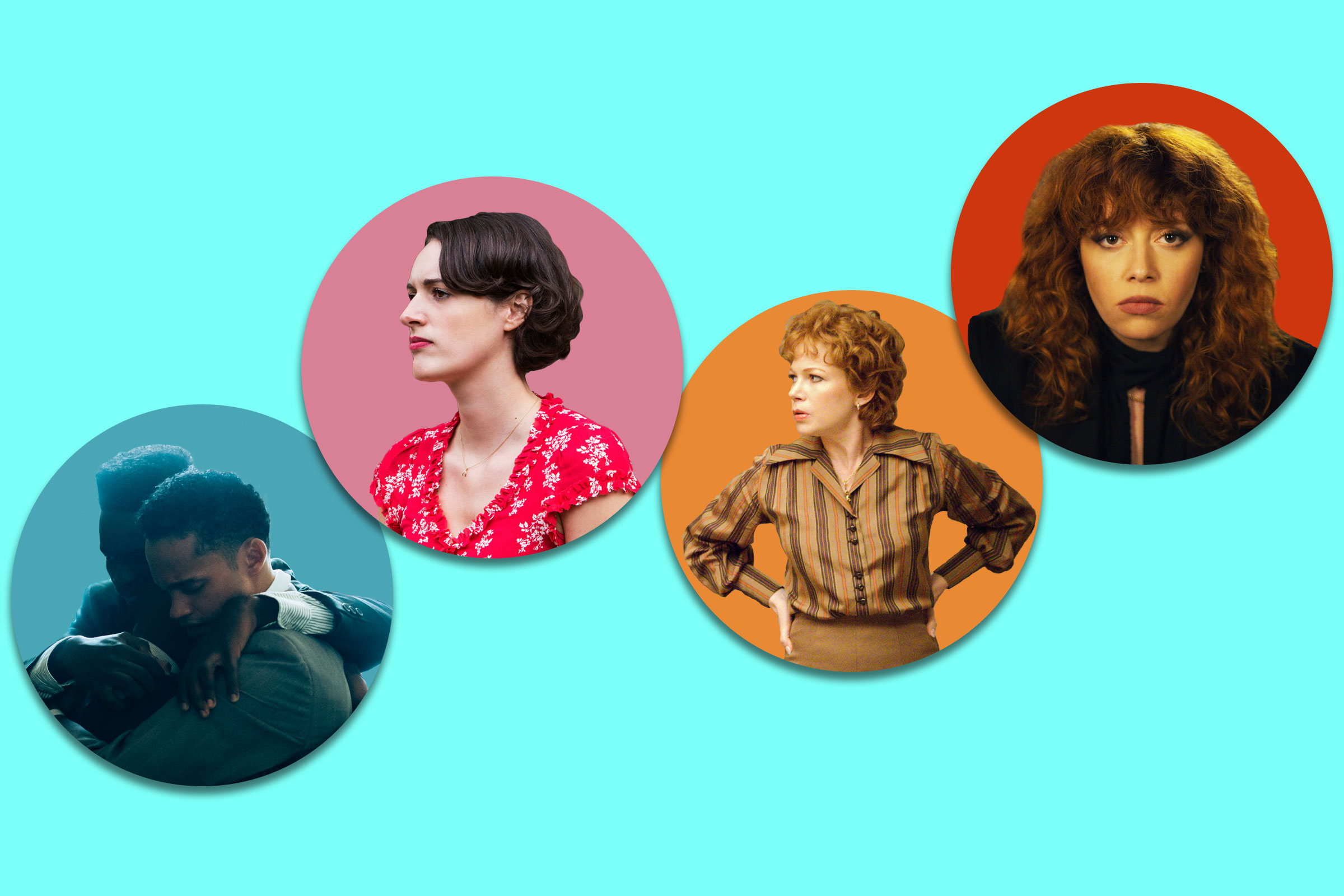
Sometime in the past five months, I ran out of patience with shows that couldn’t get character development right. Maybe that’s a subconscious reaction to the final season of Game of Thrones; TV’s last cultural monolith spent six endless episodes flattening the multifaceted Westerosi of seasons past as it gorged on fire, ice and overwrought symbolism. Whatever the reason, my 12 favorite shows of 2019 so far are a collage of personalities both believable and fresh: An aging single mom on the verge of a nervous breakdown. A tough East Village woman trapped in the bardo. A pair of extremely online late-night hosts who pull no punches. Two male sexual abuse survivors with hard truths to tell. Broadway legend Gwen Verdon. Keep your dragons—it was the human beings, real and fictional, at the center of these 12 shows that captured my imagination.
Read TIME’s picks for the best movies of 2019 — so far.
Better Things (FX)
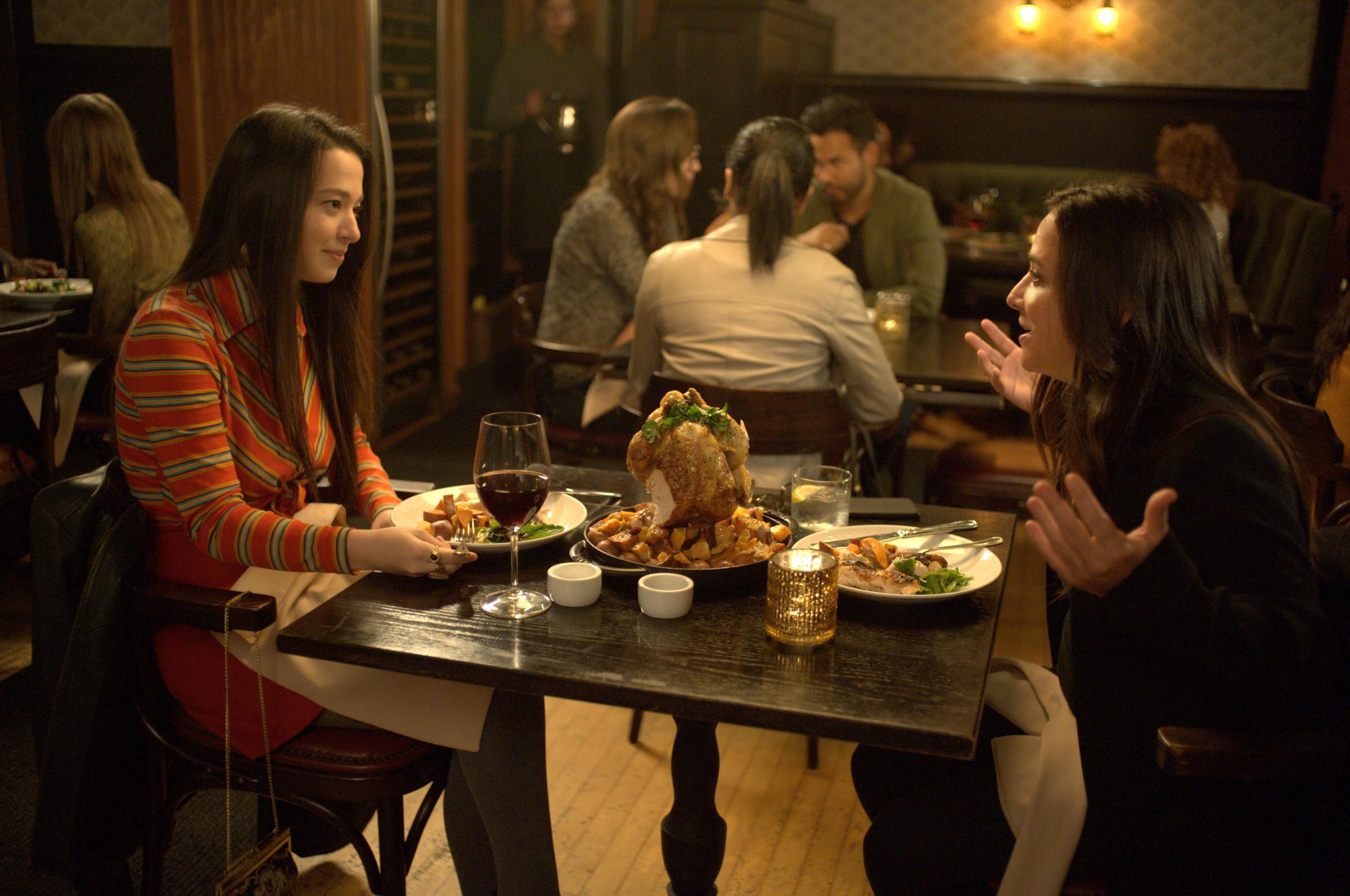
In the first season of Pamela Adlon’s drifty, semi-autobiographical dramedy, her character Sam Fox was a sort of supermom—a working C-list actor who not only managed to make a comfortable life for her three daughters, but also knew exactly what to say in any tough situation. Things have changed for the show since then, onscreen and off: Adlon lost a collaborator in Louis CK, who has turned to reactionary stand-up since reports of his sexual misconduct surfaced in 2017. Haunted by visions of her dad, who died at around the age she is now, Sam sees her kids turn less cuddly and more resentful of her. And both women are facing the physical and emotional indignities of menopause. Season 3 was Better Things’ loosest to date, its fly-on-the-wall style capturing the nuances of characters and relationships as scattered plot points slowly converged to make poignant storylines. That fluidity served the subject matter, as the show’s pleasant Southern California backdrop threw Sam’s growing unhappiness into relief.
Desus and Mero (Showtime)
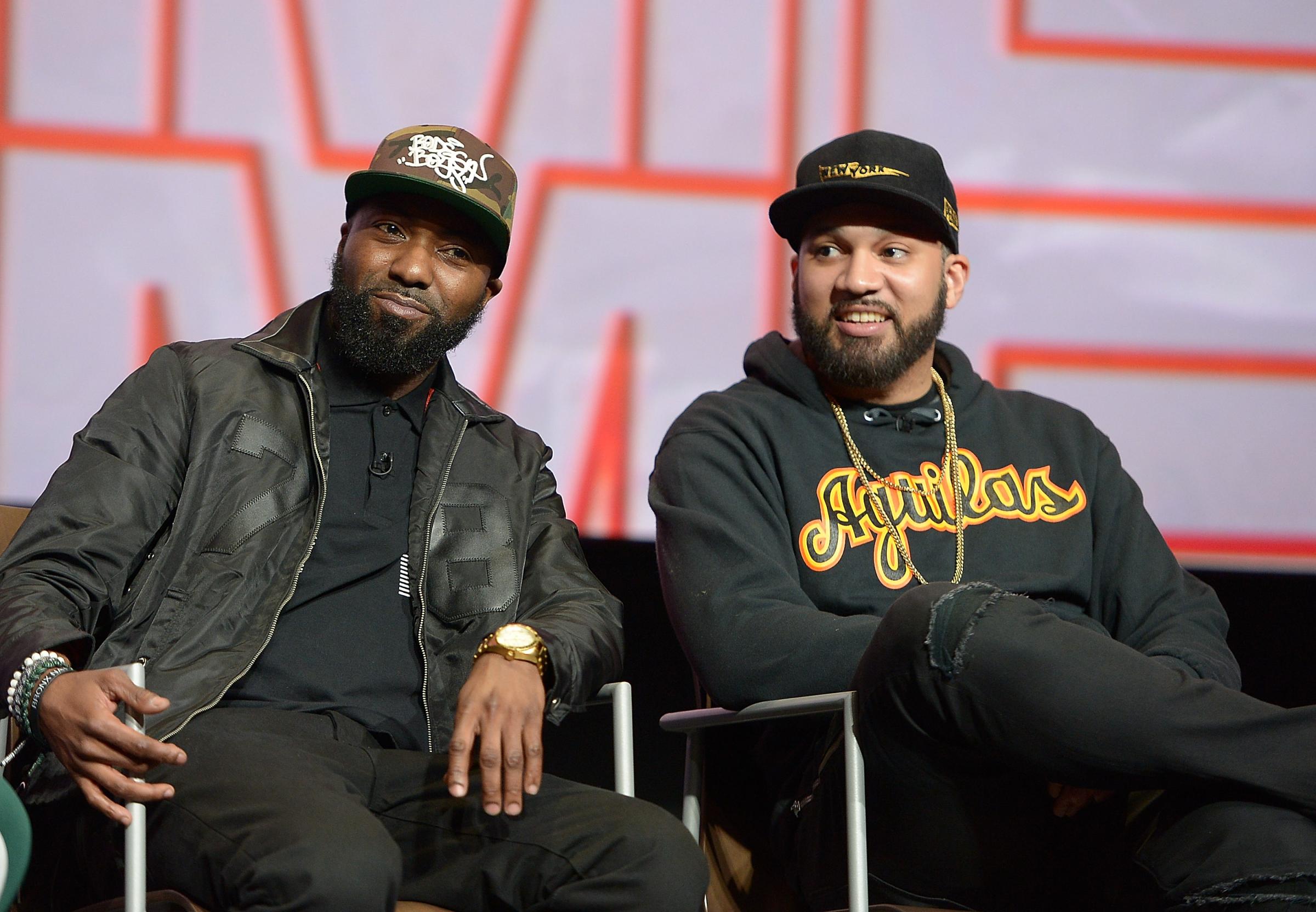
It’s hard out there for a talk-show host. Just a few weeks ago, E! pulled the plug on Busy Phillips’ chummy Busy Tonight. A-list guests couldn’t get ABC’s The Alec Baldwin Show through a full season. Amid such fierce competition, there’s a simple reason I haven’t missed an episode of Desus and Mero: It’s the only thing on TV that never fails to make me laugh until tears stream down my face. Recently upgraded from Viceland to Showtime, the Bronx’s gimlet-eyed “Bodega Boys,” Desus Nice and the Kid Mero, riff on the news, the internet, sports and pop culture, egging each other on with observational humor so wrong, it’s hilarious. (Asked whether Michael Jackson is canceled, Mero replies: “He’s dead! God canceled him.”) In interview segments, their bluntness has a way of bringing politicians like Cory Booker and Kirsten Gillibrand down to earth. Showtime must agree that the duo is worth investing in, because they’ve just doubled the show’s frequency to twice a week.
Fleabag (Amazon) and Killing Eve (BBC America)
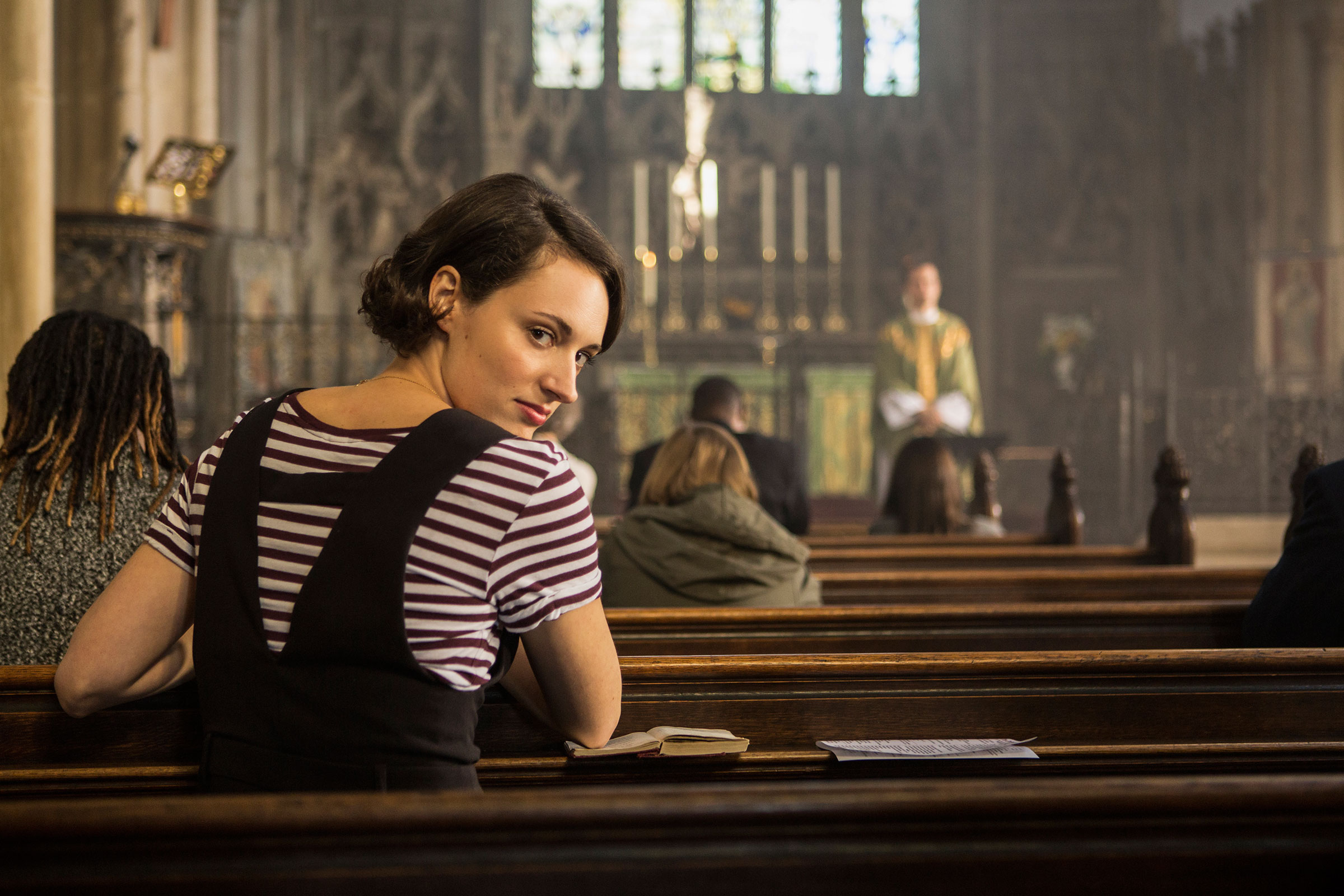
It only took 70 years and the streaming revolution, but “flawed women” (as though humans come in any other kind) on TV are no longer remarkable in themselves. Creators really have to do something with their next-gen Liz Lemons, Hannah Horvaths and Olivia Popes. And no one’s had more success at that than Phoebe Waller-Bridge. Most Americans know the 33-year-old British actor and writer from Killing Eve, a delectable thriller propelled by the mutual obsession that binds Sandra Oh’s frustrated spy to Jodie Comer’s sociopathic, pleasure-seeking assassin. But Waller-Bridge came to TV via the theater, adapting her one-woman show Fleabag—the chronicles of a hypersexual young misfit flailing in the wake of her best friend’s death—into a gobsmacking black comedy in 2016. Both shows aired second seasons this spring (although Waller-Bridge left Eve after season 1), in a confluence we don’t deserve. The new episodes of Fleabag are particularly invigorating, mining sex, guilt and familial dysfunction to question whether someone as broken as its antiheroine can find transcendence. (And if you didn’t know that Netflix has a third PWB show, six-episode hangout comedy Crashing, now you know.)
Fosse/Verdon (FX)
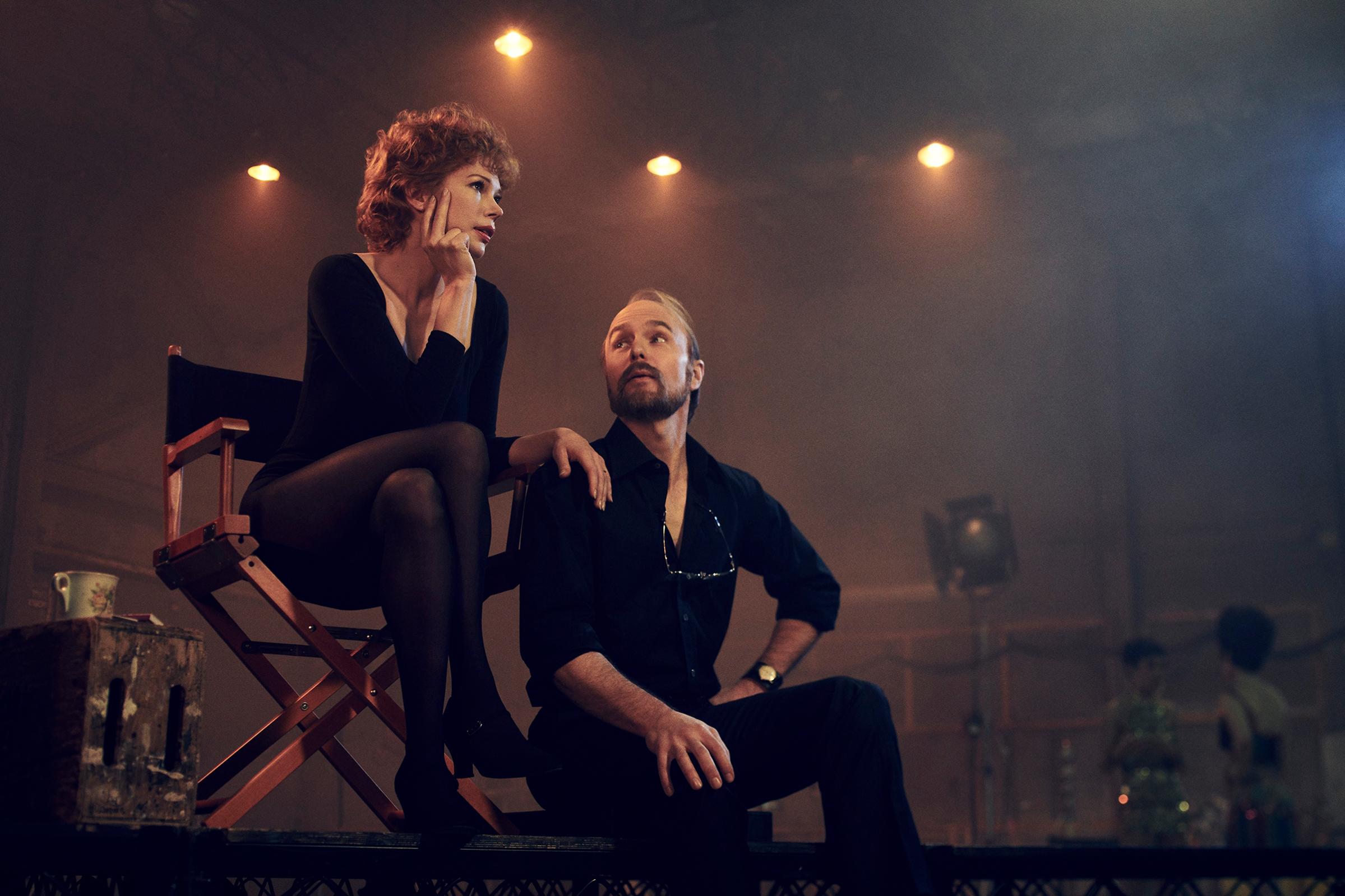
This Broadway bio-series co-created by Lin-Manuel Miranda has divided critics—many of whom have accused it of spotlighting messy male genius Bob Fosse (Sam Rockwell) to the exclusion of his wife and creative partner, the brilliant dancer, singer and actor Gwen Verdon (Michelle Williams). Well, I don’t see it. Beyond the glitzy setting and tantalizing dance numbers (including a psychedelic showstopper that plays out in Bob’s mind), Fosse/Verdon explores what happens when work takes over every corner of a couple’s life, eroding their relationship and rendering it impossible for them to find fulfillment in anything else. The five (out of seven total) episodes I’ve seen give husband and wife not just equal time, but equal emphasis. If anything, Gwen is the show’s hero. As Bob’s star rises and hers falls—in an ill-timed confluence of ageism and sexism—her ambition and Williams’ wiry, fine-tuned performance have kept me hooked.
Leaving Neverland (HBO) and Surviving R. Kelly (Lifetime)
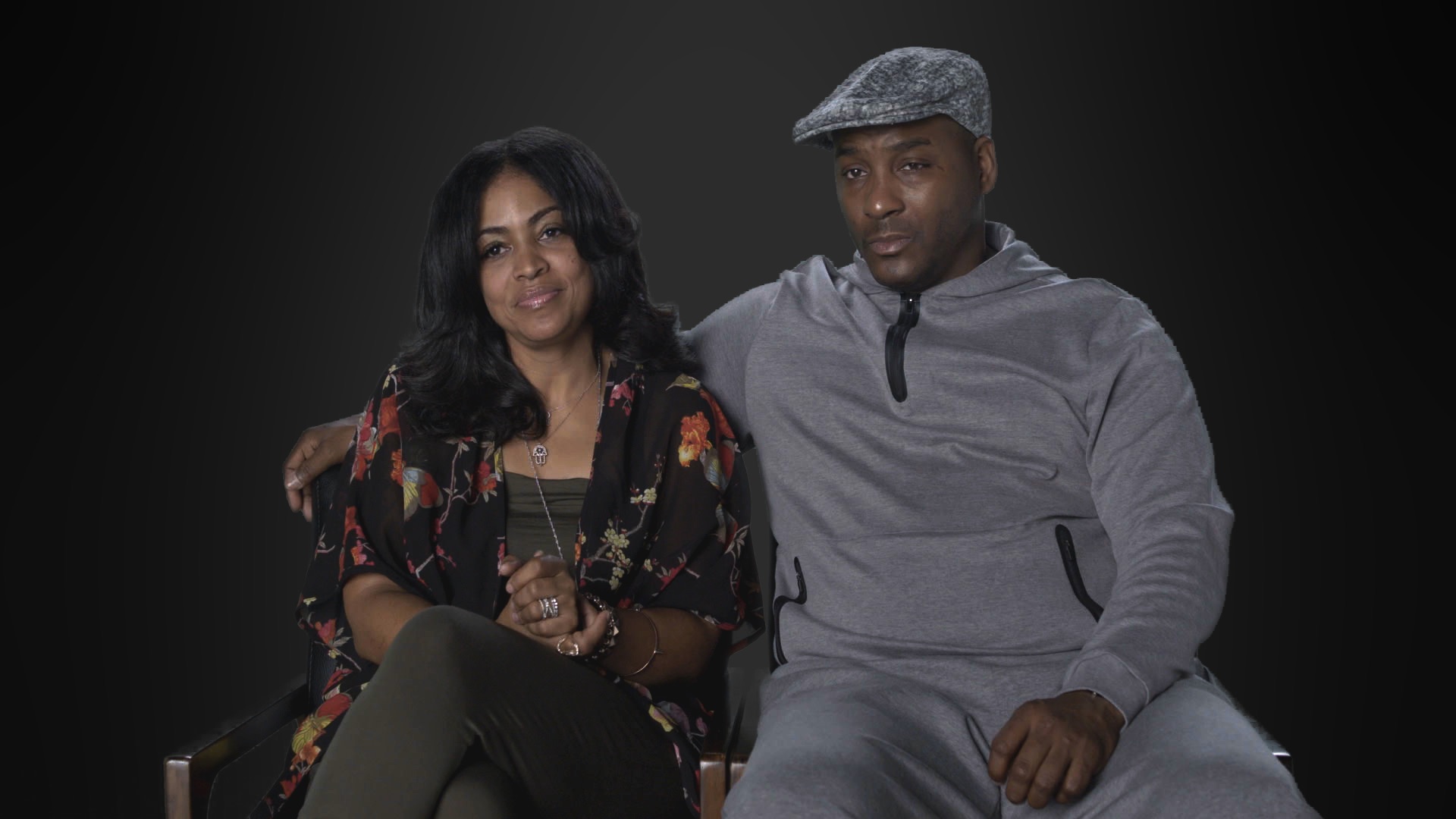
It’s been a big year for nonfiction TV, from the Tinder vérité of Netflix’s Dating Around to HBO’s buzzy Theranos doc The Inventor to Showtime’s overlooked Wu-Tang Clan: Of Mics and Men. Easily the most impactful of these projects were Leaving Neverland and Surviving R. Kelly, two harrowing docuseries about music icons who are alleged to have sexually abused minors. With Kelly still alive, working and allegedly leading a “sex cult,” Surviving executive producer dream hampton mounted a persuasive case against him, collecting testimony from dozens of exes, former employees and other associates. The response was swift: Not only was Kelly dropped by his label, but Cook County State’s Attorney Kim Foxx indicted him on 10 counts of aggravated sexual abuse (to say nothing of his bizarre interview with Gayle King). Meanwhile, Michael Jackson’s death in 2009 allowed filmmaker Dan Reed to take a more expansive view in Neverland. Extensive interviews with two alleged victims (who’d each spent decades defending Jackson) create a wrenching yet essential portrait of childhood sexual abuse, conveying the pain and confusion of being hurt by a person the world adores.
Now Apocalypse (Starz)
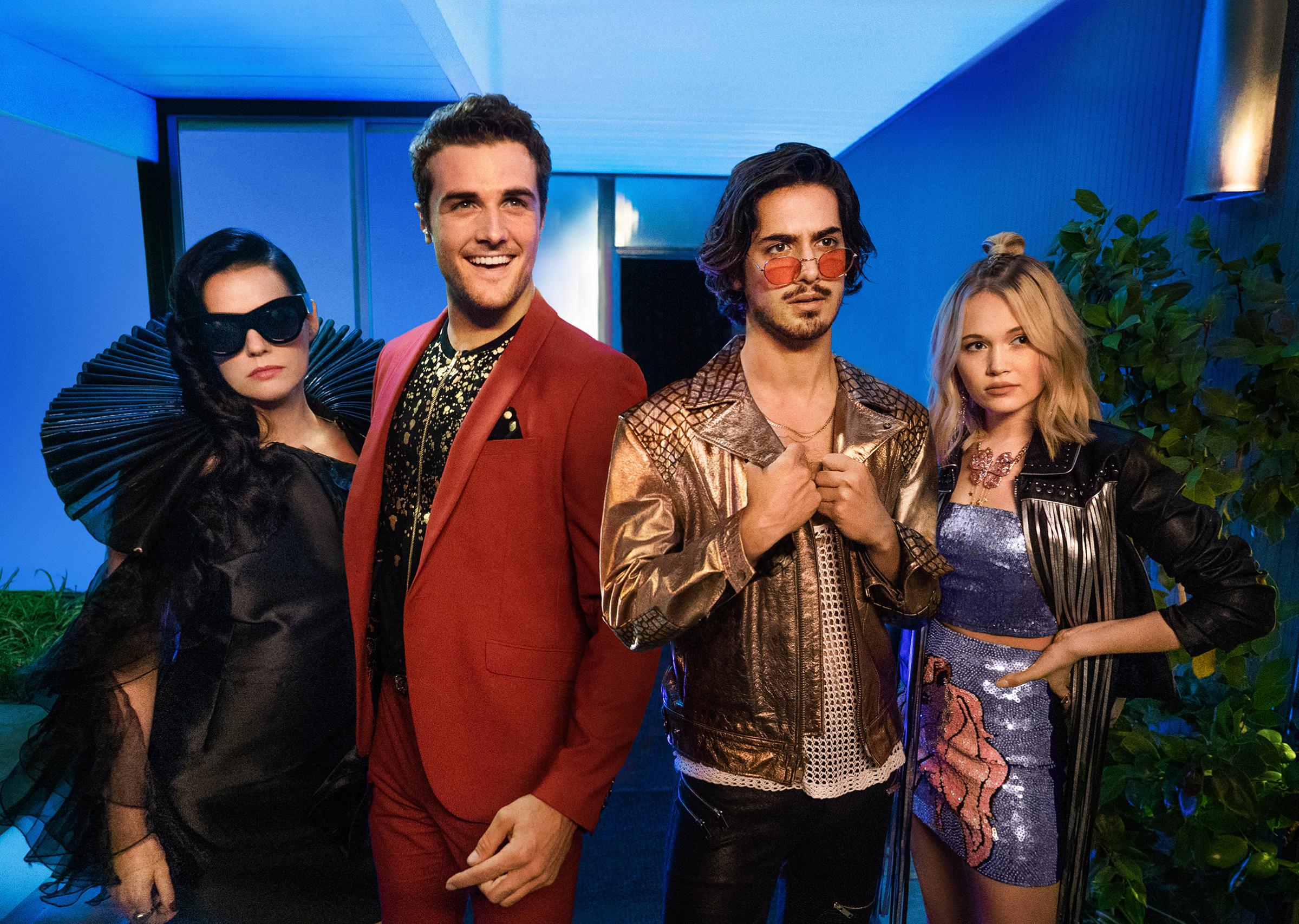
Premium cable’s weirdest show is Now Apocalypse. New Queer Cinema luminary Gregg Araki has teamed up with sexpert Karley Sciortino on a soapy sci-fi comedy about young, broke Angelenos trying to break into show business as the world burns. This show has everything: sex, drugs, rocket scientists, BDSM, punk legend Henry Rollins, Godzilla-looking aliens, a hero named Ulysses—and it’s all captured in bright, glossy shots that look as though they’ve been filtered through a wet Jolly Roger. If this beautiful, anarchic brand of fun doesn’t appeal to you on its aesthetic merits, consider this: Araki has been doing apocalyptic camp for decades, but his worldview and the actual state of the world have never seemed so aligned.
The Other Two (Comedy Central)
If you’ve noticed a dip in the quality of SNL in the last few years, you’re not alone. Some might attribute that decline to the departure of former head writers Sarah Schneider and Chris Kelly, who left the show in 2017. Two years later, they’re back with The Other Two, a madcap comedy about a tween pop star’s hapless older siblings. At first, it struck me as a tamer version of Billy Eichner and Julie Klausner’s nasty little Hulu delight Difficult People; a gay man and a straight woman in New York try to claw their way into the entertainment industry, hampered mostly by their abrasive personalities, with lots of celeb cameos. But Schneider and Kelly have actually made something warmer and more insightful: As young ChaseDreams (Case Walker) finds overnight fame, Brooke (Heléne Yorke) and out-of-work actor Cary (Drew Tarver) remain trapped between their own aspirations and reality. Yet despite his outward resemblance to Justin Bieber, Chase is a sweet kid caught in a media whirlwind. The Other Two understands our current celebrity culture better than any showbiz satire I’ve seen, giving “Instagays” and absurd sponsorships equal weight with stage moms (Molly Shannon) and shady managers (Ken Marino).
Russian Doll (Netflix)
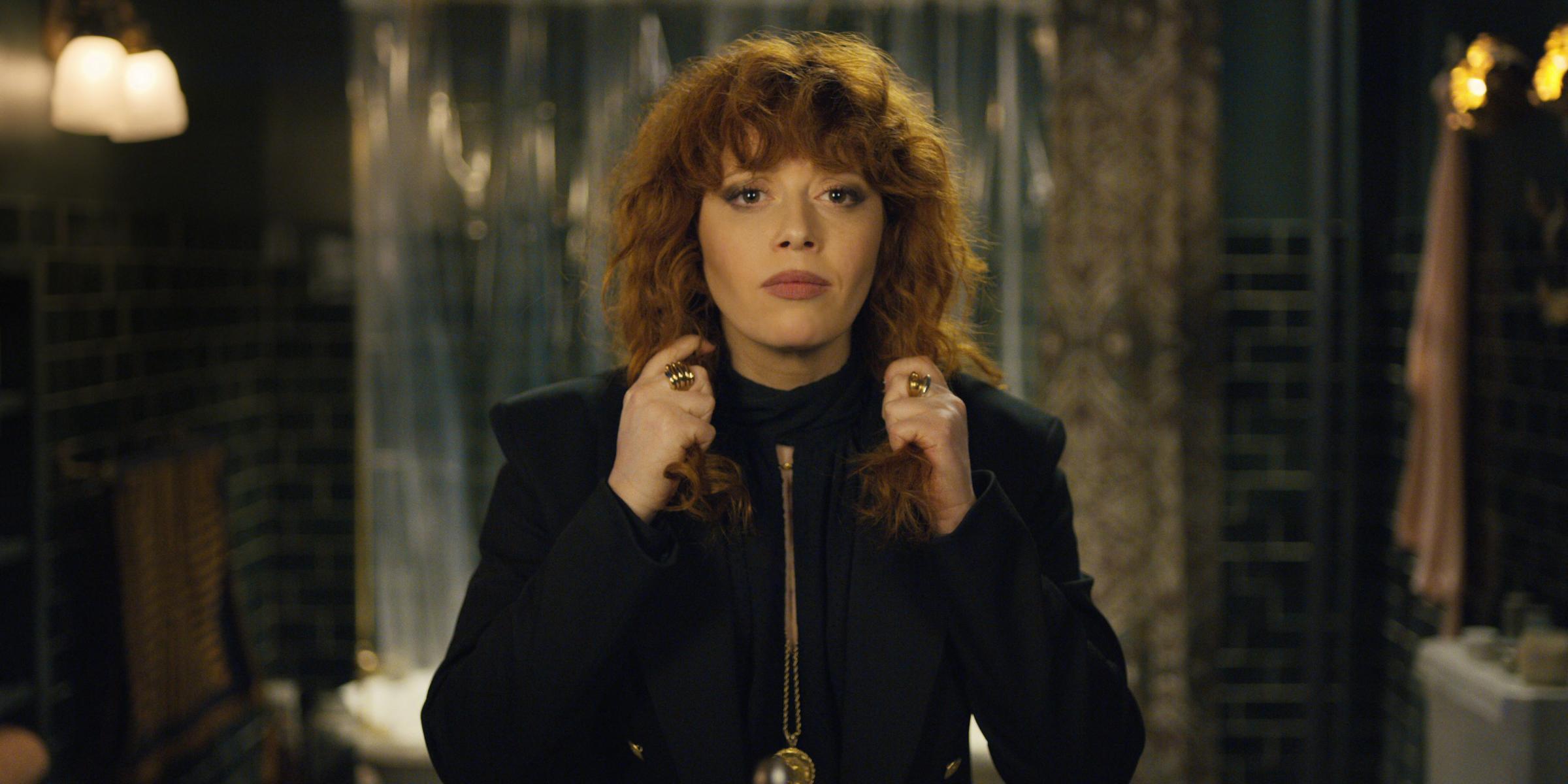
The people demanded more Natasha Lyonne, and Netflix delivered with this extremely Natasha Lyonne series, which the Orange Is the New Black star created with Bachelorette writer-director Leslye Headland and Amy Poehler. A monument to the old, weird New York, Russian Doll is an uncategorizable half-hour show in which cranky, self-destructive loner Nadia (Lyonne) keeps dying on her 36th birthday. Whether she’s hit by a cab, falls into a manhole or trips on the stairs, she always finds herself back in the same bathroom on the same night, as if nothing has happened. The story takes a fascinating turn when Nadia meets Alan (Charlie Barnett), a jilted boyfriend who’s caught in the same death loop. Beneath its tough, mysterious exterior, Russian Doll conceals generous explorations of trust, trauma and—I’m not exaggerating here—the meaning of life. (It’s also apparently a comment on gentrification and a fractious moment in East Village history.)
The Society (Netflix)
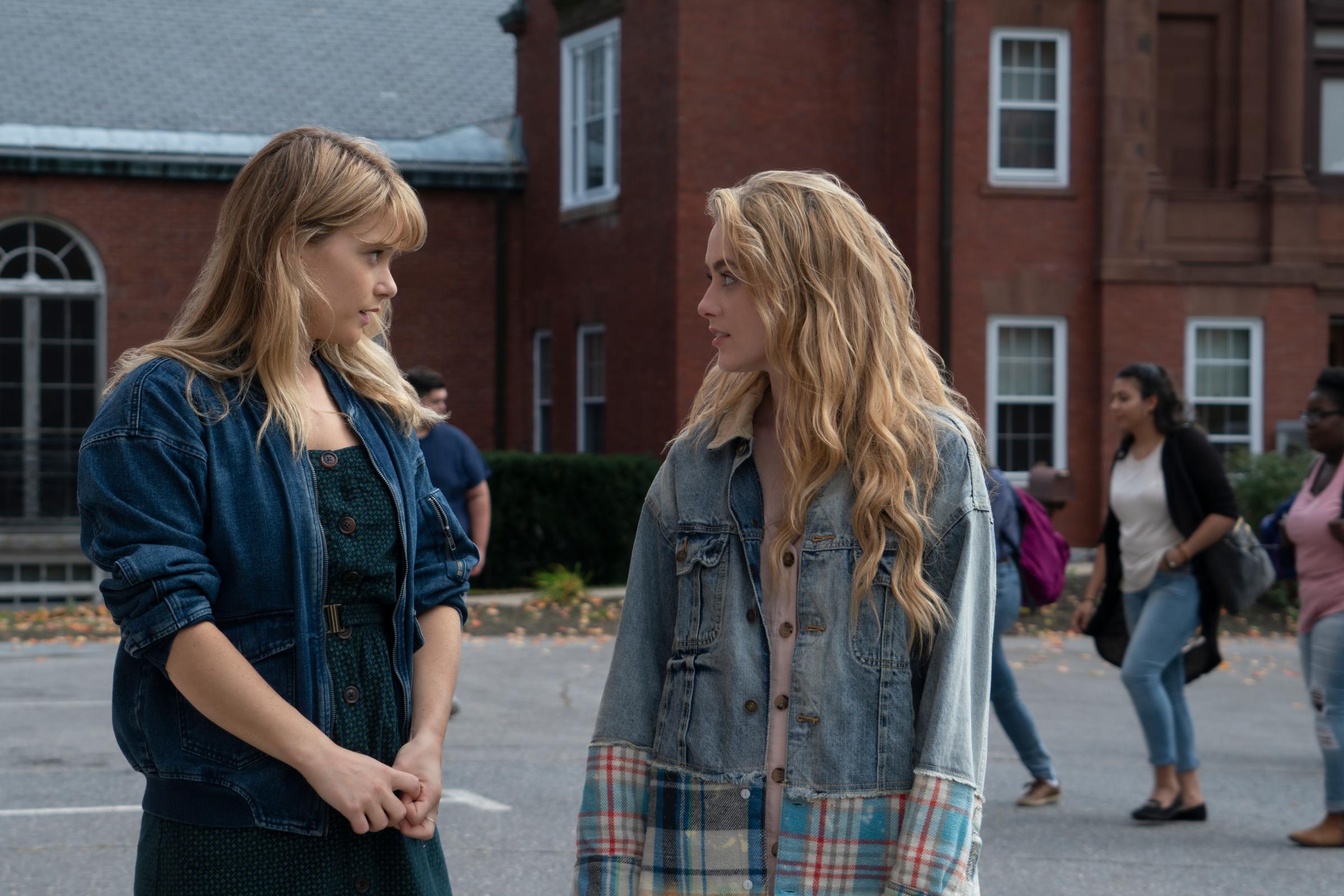
Real talk: The first episode of this teen sci-fi drama from Party of Five co-creator Christopher Keyser didn’t do much for me. As an idyllic Connecticut town is stricken by a putrid odor, a few hundred upperclassmen from the local high school are whisked away on a camping trip. They never make it; hours after their departure, the kids are dropped off in an isolated and deserted town that looks just like—but may not be—their home. Escape seems impossible. Things devolve from “Woohoo! No parents!” to Lord of the Flies pretty quickly. That much is predictable. What I didn’t see coming was an early twist that makes The Society not only addictive, but thematically ambitious in a way that so many YA stories are not. Grounded in mostly excellent performances from a cast that includes Rachel Keller (Legion), Kathryn Newton (Blockers) and Sean Berdy (Switched at Birth), the show interrogates the way societies are built and demonstrates how quickly power corrupts.
When They See Us (Netflix)
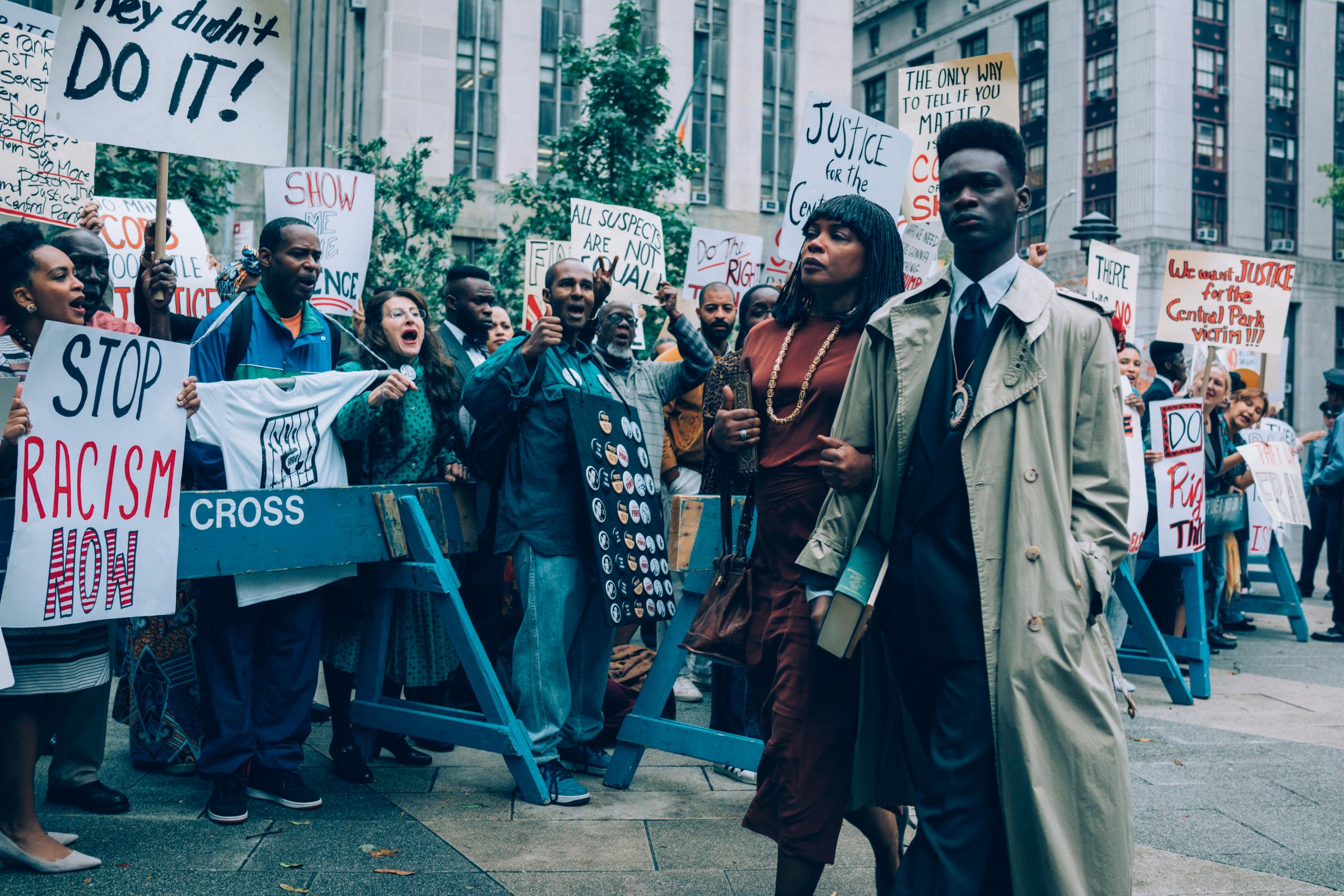
If you followed the news in the late ’80s and early ’90s or watched Central Park Five, the excellent 2012 documentary co-directed by Ken Burns, you know the saga of five black and Latino teenagers who were wrongfully convicted in connection with the notorious rape and attempted murder of a white, female Central Park jogger in 1989. But you haven’t heard the story told Ava DuVernay’s way. One of pop culture’s most astute observers of the intersections between race, the law, current events and American history, DuVernay explores the case in this emotional Netflix miniseries (out May 31) that trains its gaze on the faces, families and experiences of five innocent boys ensnared by a racist criminal justice system. Top-shelf collaborators from Selma cinematographer Bradford Young to a cast that includes Michael K. Williams, Vera Farmiga, John Legiuzamo, Kylie Bunbury, Niecy Nash and Felicity Huffman—supporting five talented young actors—help give When They See Us the feel of prestige cinema. If any of fall’s Oscar contenders is half this good, it’ll be a stellar year for movies indeed.
Correction, May 24:
The original version of this story misstated the name of the actor who plays Alan in Russian Doll. His name is Charlie Barnett, not Charlie Bennett.
More Must-Reads from TIME
- Donald Trump Is TIME's 2024 Person of the Year
- Why We Chose Trump as Person of the Year
- Is Intermittent Fasting Good or Bad for You?
- The 100 Must-Read Books of 2024
- The 20 Best Christmas TV Episodes
- Column: If Optimism Feels Ridiculous Now, Try Hope
- The Future of Climate Action Is Trade Policy
- Merle Bombardieri Is Helping People Make the Baby Decision
Contact us at letters@time.com